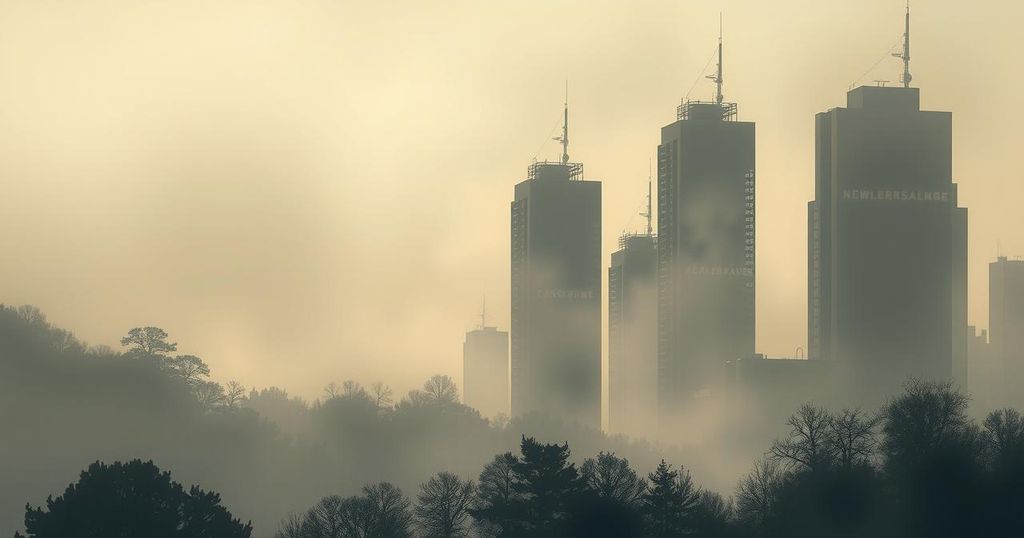Pakistan Ranked Third in Global Pollution Amid Smog Crisis in 2024
In 2024, Pakistan ranks third globally in pollution levels, facing a severe smog crisis affecting public health. With PM2.5 levels nearly 15 times the WHO limit, millions suffer health issues. Major cities like Lahore and Peshawar are severely impacted, prompting urgent calls for policy changes, yet overall pollution remains unchanged from 2023.
In 2024, Pakistan was designated as the third most polluted country globally, experiencing a significant smog crisis that adversely affected public health. The ranking, as per the 2024 World Air Quality Report by IQAir, highlights that Pakistan’s average PM2.5 concentration reached 73.7 micrograms per cubic meter, which is nearly 15 times higher than the World Health Organization’s recommended safety limit.
The report indicated that Pakistan ranked behind Chad and Bangladesh in terms of pollution levels, while the Democratic Republic of Congo and India followed in the fourth and fifth positions, respectively. Lahore, Multan, and Peshawar emerged as some of the most impacted cities, contributing to a nationwide health crisis, with nearly two million citizens needing medical care due to pollution-related ailments.
In Punjab, authorities declared the high smog situation a “calamity,” imposing lockdowns and closing schools in heavily affected regions. Despite the alarming conditions, the overall air pollution levels in Pakistan remained consistent with those observed in 2023, showing no improvement.
Cities such as Lahore, Multan, Peshawar, and Sialkot ranked among the 15 most polluted in Central and South Asia. Factors contributing to such high pollution levels included biomass burning, emissions from industrial activities, vehicular pollution, brick kilns, and construction debris. While pollution levels in major cities like Islamabad and Rawalpindi worsened, Karachi experienced a slight decrease in PM2.5 levels, lowering from more than 55 μg/m³ in 2023 to approximately 46 μg/m³ in 2024.
Moreover, a survey conducted by Ipsos reported that about 70% of the Pakistani population reported health problems linked to smog. This rising environmental concern has galvanized calls from experts for immediate policy interventions designed to improve air quality and safeguard public health.
The 2024 air quality report underscores the grave pollution crisis in Pakistan, ranking it third in the world. The troubling concentration of PM2.5 particles, alongside the smog crisis affecting a significant portion of the population, necessitates urgent governmental policy measures. The findings indicate an ongoing public health threat, imploring authorities to take swift action to mitigate pollution and protect citizens.
Original Source: www.republicworld.com




Post Comment